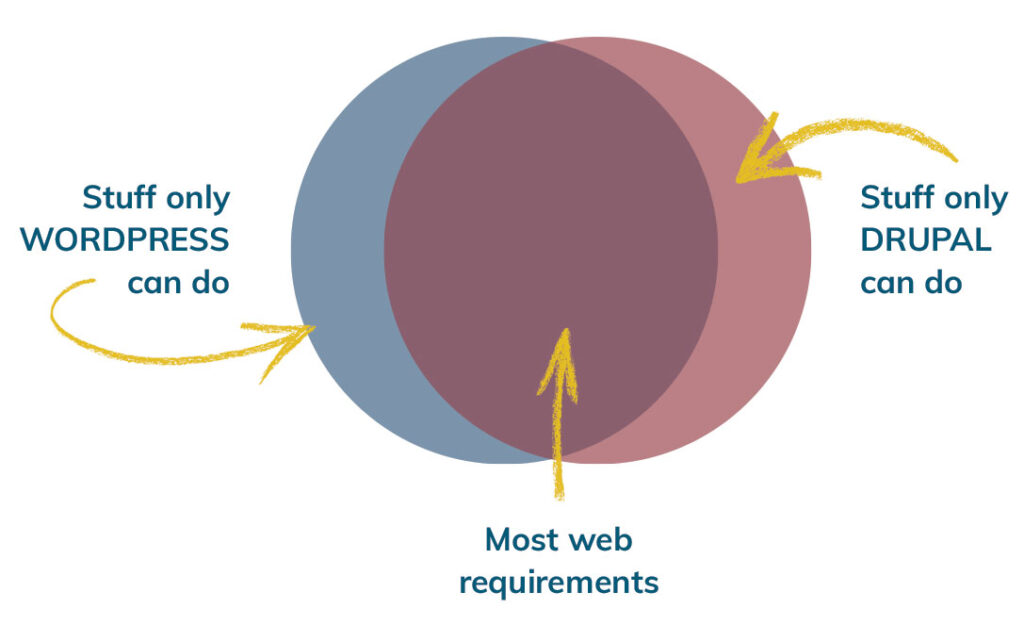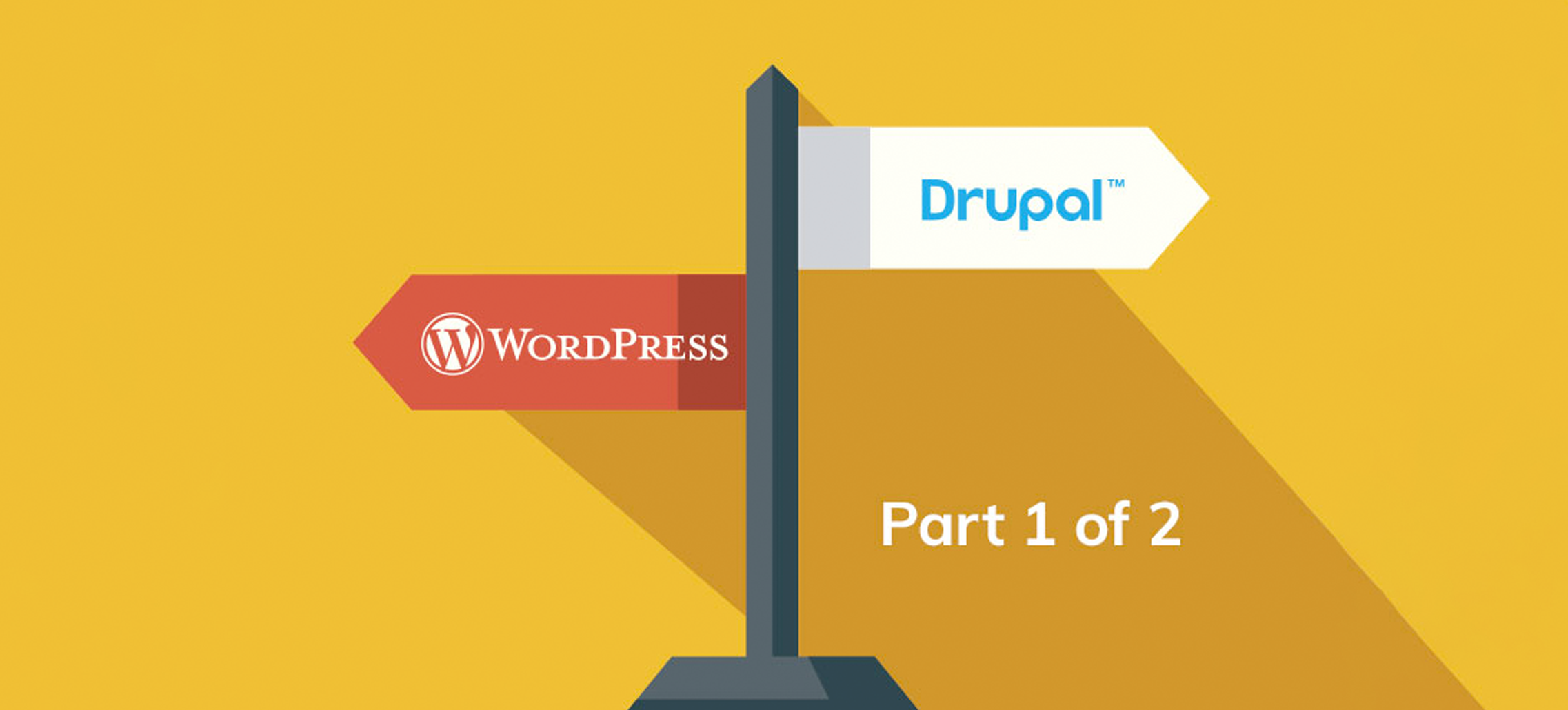Use the Right Tool for the Job
One of the joys of working with open-source technologies is not being married to any particular solution. We’ve all heard the classic phrase, “when you have a hammer, everything looks like a nail.” A cornucopia of open-source content management systems (CMS) exists. If you reach into your toolbox and only have one system at hand, you run the risk of falling into the hammer-nail trap.
Clearly, the most prevalent and popular content management options are WordPress and Drupal. Estimates vary wildly – but some sources suggest that between the two systems, they run about half of the biggest 10,000 sites on the web.1,2. They’re both highly modular and extensible, and they both have enthusiastic fan bases eager to convince everyone to get on board. Because they can both solve so many problems, it can be difficult to pick one when setting out to build a site.
WordPress
WordPress is a software designed for everyone, emphasizing accessibility, performance, security, ease of use, and has two flavors; commercial (.com) and an open-source platform (.org). The software is open-source that you can use to create beautiful websites, blogs, or apps. It started in 2003 and has been the platform of choice for over 35% of all sites across the web (including our website).3

Some notable websites running on WordPress are:
- The Obama Foundation
- Rolling Stone
- Vogue
- TechCrunch
- Women’s National Basketball Association (WNBA)
- The Jane Goodall Institute
You view more showcases at https://wordpress.org/showcase/
Drupal
Drupal has been around for even longer than WordPress, though it lacks WordPress’ market share. Originally launched in 2000, Drupal powers 2.3% of all websites and has a 4.6% share of the content management system market.4

Some notable websites running on Drupal are:
- Children’s Hospital of Los Angeles
- The U.S. Department of Energy
- The Beatles
- Major League Soccer (MLS)
- NASA.gov
You can view more showcases at https://www.drupal.org/case-studies/featured
It’s not always possible to predict what the right choice will be for 5 years down the road, but taking a measured approach can help guide you towards picking the right tool.
Picking the wrong content management system can run up a lot of undesirable technical debt. Organizations may find themselves creating expensive customizations for something that a different solution does out of the box. On the flip side, they may be overburdened by having too many options or be unable to pay the upkeep costs of a more complex site. It’s not always possible to predict what the right choice will be for 5 years down the road, but taking a measured approach can help guide you towards picking the right tool.
This Venn diagram explains why choosing between the two platforms can be difficult: most requirements are satisfied by either platform. We’ll come back to this diagram.

What are the costs of choosing the wrong CMS?
There are three main consequences for choosing the wrong CMS.
The first, and most important, is technical debt. This kind of debt is what happens when a business makes a technical choice that causes problems for them later. To be blunt, it’s when an organization’s choices sting them in the tail.
Much like financial debt, these bad choices can wind up owning an organization. Having a lot of technical debt can make it hard for an organization to do business effectively, force them to make concessions, and follow them around for a really long time. Technical debt is the bane of budgets and schedules everywhere and must be avoided as much as possible.
The second consequence is customization cost – how much it costs to do the things specific to each project. Usually it’s perceived as an up-front cost, but it can also affect the prices of features added later – and those potential features are hugely important to consider.
The final consequence of choosing a CMS is upkeep cost – the ongoing costs of a website. This includes paid themes or extensions, as well as any maintenance costs associated with the website itself. A more complex website with more moving parts is going to have higher upkeep costs, for the same reasons that a Bugatti is more expensive to maintain than a VW Beetle. (And be assured: if you don’t pay the upkeep costs, you will suffer. These platforms are software, and software needs consistent maintenance to stay integral and secure.)
So, how do you make the right choice?
Tune in next week for part 2 of Drupal or WordPress?
1https://trends.builtwith.com/cms/WordPress
2 https://trends.builtwith.com/cms/Drupal
3 https://wordpress.org/about
4 https://kinsta.com/blog/wordpress-vs-drupal/



